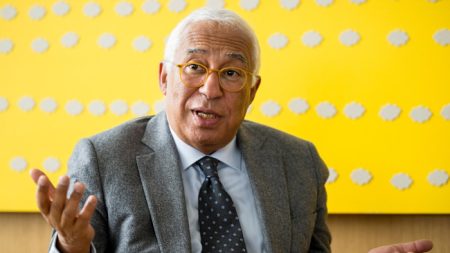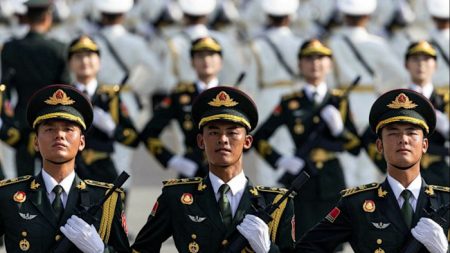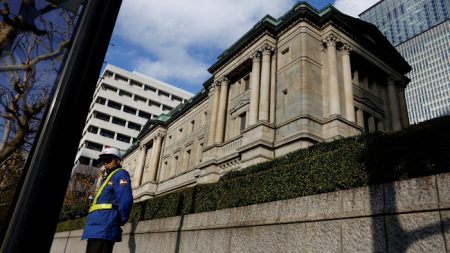Unlock the Editor’s Digest for free
Roula Khalaf, Editor of the FT, selects her favourite stories in this weekly newsletter.
Michael Gove has defended the UK government’s new definition of extremism against a wave of criticism, maintaining it does not seek to ban organisations but will instead allow official bodies to “choose our friends wisely”.
The communities secretary, who drew up the guidelines against a backdrop of weekly pro-Palestinian protests and mounting tensions over the Israel-Hamas war, said he already had some “groups of concern” in his sights.
But he added that no decision would be taken to add such groups to a list unless due diligence was undertaken.
“This is not about banning organisations,” Gove told the BBC’s Today programme. “It’s important when government seeks to work to counter hatred . . . that we’re able to choose our friends wisely.”
The guidelines, released on Thursday, will not affect criminal law but are intended to stop the government funding or engaging with groups that spread extreme ideologies or hate in their communities. Those deemed “extremist” will be denied government grants, ministerial meetings, access to the senior civil service and public appointments.
Extremism is defined as “the promotion or advancement of an ideology based on violence, hatred or intolerance that aims to negate or destroy the fundamental rights and freedoms of others”.
But the guidelines have been launched into a political firestorm.
Three former Tory home secretaries have warned this week against the dangers of politicising the debate over extremism, while the two most senior clerics in the Church of England have expressed serious concerns about the new definition.
The ruling Conservatives have also been criticised for taking £10mn from a donor who expressed what they have conceded were racist views.
Asked whether the definition could lead to an investigation into racist and threatening remarks by Tory donor Frank Hester, Gove said: “I wouldn’t want to conflate those motivated by extremist ideology with an individual comment, however horrific, which has quite rightly been called out and which has quite rightly led to an apology.”
Miriam Cates, co-head of the New Conservatives group of rightwing MPs, criticised Gove’s proposals, arguing that “in a democratic society with a plurality of beliefs and opinions, it is surely impossible to establish robust legal definitions of terms such as ‘extremism’ or ‘British values’”.
“One man’s extremist is another man’s courageous champion of an unpopular cause,” she argued in an op-ed for The Critic, adding that she thought attempts to legalise abortion to birth and some people’s views on gender fluidity were “extreme”.
Conservative peer Baroness Sayeeda Warsi accused the government of stoking “dangerous and divisive politics”.
“Michael Gove will not divide us in his ideological pursuit of a policy that has been rejected and criticised by victims of terrorism, ex-home secretaries and even the Archbishop of Canterbury,” she wrote on X.
Lord David Anderson KC, former independent reviewer of terrorism legislation in the UK, told the BBC that the definition was “extremely broad” and risked catching both sides of the trans rights debate.
He also questioned why the bill would not face parliamentary scrutiny, as it was not just a “matter for government” and was likely to affect “the freedoms and the reputation of an awful lot of people”.
Asked whether the definition might capture groups that used terms such as the pro-Palestinian slogan “from the river to the sea”, Gove said a phrase alone would not. “What we’re looking at is an ideology, a pattern of behaviour and a certain set of beliefs or actions,” he said.
Read the full article here














